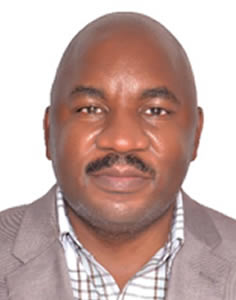
Dr. Donald Rugira Kugonza Akiiki
Dr. Kugonza is an Animal Scientist with BSc. Agriculture honours degree (1997), M.Sc. Agriculture (Animal Science) (2003), Doctorate of Philosophy (PhD) in Animal Breeding and Genetics (2010) from Makerere University, and a first class Master of Business Administration (MBA) summa cum laude from the prestigious Amity Business School (2016).
He is an Associate Professor teaching animal breeding, genetics, animal agriculture and apiculture courses. He is also an Adjunct Professor of BioSciences at Chandigarh University in India. He coordinates the Service Learning Internship Program, a 15-year collaboration between Makerere University and Iowa State University, USA.
His major research interests are in conservation and performance improvement of African Animal Genetic Resources. He is Chairperson of Management/Advisory Boards of several national and regional organisations including: the National Livestock Resources Research Institute (NaLIRRI) of NARO; the Fisheries Training Institute (FTI); the Uganda National Bureau of Standards (UNBS) Technical Committee (TC2/SC14) on Apiculture & Apiculture Products. He is President of the Association of Uganda Professional Agriculturalists (ASUPA); and is member of the African Union-InterAfrica Bureau for Animal Resources (AU-IBAR) Taxonomy Advisory Group and member of the African Technology and Innovation Incubators Advisory Committee (ATIIAC); the Uganda Society of Animal Sciences (USAS).
He is an assiduous Editor of Elsevier’s Scientific African Journal (SciAf), and Sub-editor for the South African Journal of Animal Science (SAJAS) and a regular reviewer for several high impact journals in his specializations. He has won several awards at national, regional and international level for research that impacts livelihoods and creates knowledge. His international engagement as a Uganda delegate at world events goes back 26 years when he rose to be a full-term Vice Chairman of the World Youth Forum after a vote by 113 countries.
Download CV below
